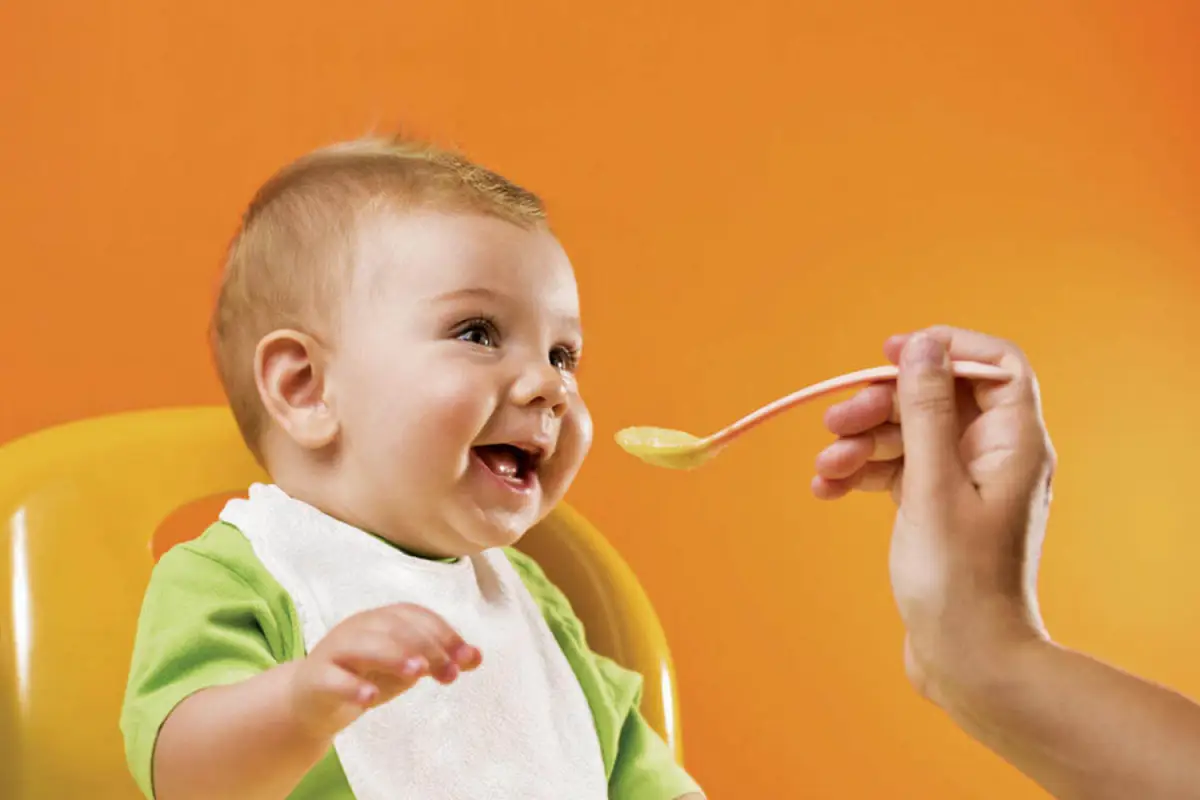There are many feeding milestones that require to be achieved when a baby is ready to eat solid foods. Here are a number of important ones.
1. When to start solids
Most pediatricians, recommend introducing solid foods to babies between ages 5 and 6 months. Once they start to lose the “tongue-thrust reflex” or extrusion reflex, which is vital for sucking the breast or bottle. They are younger, but interferes with feeding. Babies at now also can lift their heads up independently and hold their necks high.
If your baby is around this age, stay up well with support, shows interest in the foods that you eat. It is probably an honest time to venture into feeding your baby solid food. If your baby is exclusively breastfed, it’s recommended that you simply wait until he’s 6 months to start out solids.
2. When They’re able to Move From Puree to Chunks
“Chunking up” babies’ food may be a process — obviously, they shouldn’t go straight from rice cereal to cold cereal . After first few weeks of adjusting to eating instead of just drinking his food, your baby should get use to eating
Introduce new textures slowly. Good starters are mashed bananas or mashed avocados. Store-bought baby will gracefully go stage by stage firstly from puree to chunkier food. (Babies don’t necessarily need to have tons of teeth to chew food they will often gum soft foods very well!)
3. When they Can Sit during a High Chair
When babies are able to eat solid foods, they will sit upright with support and delay their head and neck. They’re capable of sitting during a high chair! That’s significant but you will need to follow these safety rules: Always buckle a baby into his chair for safety. As he gets older and becomes more active, he could also be ready to squirm out. It’s an honest habit to buckle a toddler in his chair in order to prevent injury
4.When You Can Start Feeding Them Finger Foods
Kids between 7 and 11 months usually tell you they’re able to eat more grown-up foods by trying to grab them from you. Almost any food that’s healthy and nutritious and features a soft texture makes an honest nutriment or can be said good feeding . If it’s cut small enough: diced pasta; small pieces of well-cooked vegetables like carrots, peas, or zucchini; and pea-sized bites of chicken or soft meat. Small, unsweetened round cereals and cereal puffs also are an honest choice. Avoid feeding your baby grapes, hot dogs (even cut up), nuts, and candy , as they’re choking hazards.
At first babies “rake” food into their hand, but soon they develop the “pincer grasp” that permits them to select up small objects between thumb and forefinger. At that time , your baby can become a professional at self-feeding, so encourage finger foods and let your baby explore!
5. When You Start Using Spoons For Feeding
As soon as babies suits being fed with a spoon, they’ll want to carry & grab the spoon in their mouths. That does not mean they’re graceful, of course.
Most babies don’t learn to use a spoon effectively until after their first birthday. You can let a younger baby who’s interested provides it a whirl for practice. Try giving him a soft-tipped spoon to carry while you feed him with another. He can get wont to holding the spoon himself and can even be distracted from grabbing yours.
When you think he’s able to actually navigate the spoon into his mouth to eat .Try thicker, stickier foods like yogurt, mashed potatoes, or pot cheese . Another tip: Put some cheese on the spoon then a couple of pieces of O-shaped cereal on top. The cheese won’t fly everywhere, therefore the baby can get the experience of truly getting the cereal into his mouth.
Expect a mess! Use a plastic or other waterproof bib, and put a mat under the high chair to form cleanup easier.
6. When they Can Try Highly Allergenic Foods
Some pediatricians still recommend waiting until children are a minimum of age 1 before offering them certain foods. Foods that are considered highly allergenic, like eggs or fish. But the research doesn’t demonstrate any benefit to waiting past a particular age to introduce these foods. History of food allergies or other reasons to believe your baby could also be predisposed to them.
There is no evidence that introducing highly allergenic foods to children under age 1 makes them any longer likely to be allergic to them. Many pediatricians are still very cautious about shellfish and peanuts, however, because allergies to those foods are often particularly dangerous.
7.When They Start To Drink Water
Babies don’t need water during their first 6 months of life. They get all the water they have from breast milk or baby formula. Babies under age 6 months shouldn’t tend any water in the least , because it’s easy to refill their tiny stomachs and that they should be filling abreast of the nutrients they receive from the milk to grow. Once they begin eating mostly solid foods, around age 9 months, they will start water with meals employing a sippy cup.
If your older baby shows an interest in water that you’re drinking water. There is no harm in letting him have a couple of sips. Just don’t let it replace the nutritious breast milk or formula he should be getting.
8. When They Can Completely Feed Themselves
Mastering eating with utensils may be a long process. Most babies don’t become really skilled at it until they’re well past their first birthday. Encourage your child to practice safely, and again, be prepared for a touch mess. (How else will you get the “oatmeal within the hair” pictures which will embarrass him years later?).
For more information and tips , visit our Pediatrician Department or Book an appointment Online .

